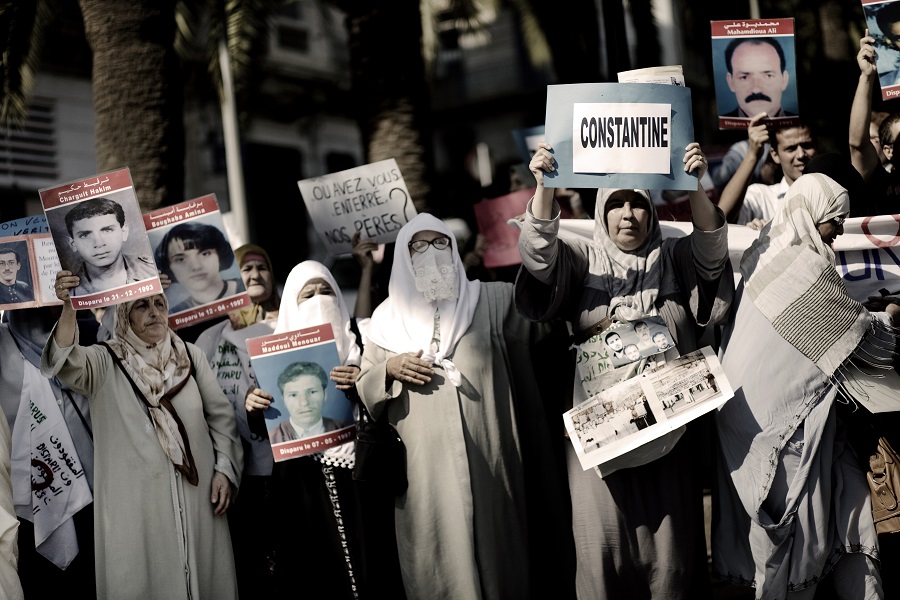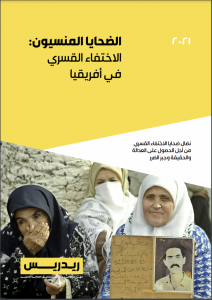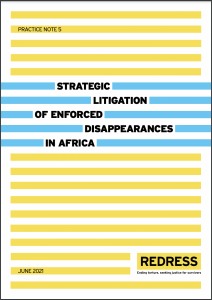Enforced Disappearance in Africa
In many conflicts in Africa, from the Algerian civil war in the 1990s, Libya under Muammar Gaddafi, Sudan during the civil war, and Zimbabwe under Robert Mugabe, opponents of the government or people just in the wrong place at the wrong time have disappeared. The victims of these enforced disappearances are often tortured, and their family are left behind with no information on the whereabouts or fate of their loved one.
Adopting a victim-centred approach, REDRESS has worked with partners in Algeria, Sudan, Zimbabwe, and Libya to support human rights lawyers to bring cases challenging enforced disappearance, and to highlight this particular problem to the African Union and specific governments. Our partners in this project have been Zimbabwe Lawyers for Human Rights, MENA Rights Group, Lawyers for Justice in Libya and the African Centre for Justice and Peace Studies.
Through our work, we sought the development of African standards for the prevention of this crime, while empowering the families of victims to pursue accountability. On 13 May 2022, REDRESS and partners welcomed the adoption of the first African instrument aimed to eradicate and prevent enforced disappearances, and to improve the situation of victims. The African Commission on Human and Peoples’ Rights, Africa’s main human rights body, announced the adoption of the Guidelines for the Protection of All Persons from Enforced Disappearances in Africa at its 71st Ordinary Session in Banjul, The Gambia. Over the last three years the organisations supported the work of the African Commission by convening several expert workshops and events, in which many regional and international experts participated.
Our project explored cross-cutting areas, such as enforced disappearance in the context of migration routes (Sudan, Libya), opposition activists and rights defenders, security and conflict related disappearances (with ethnic and religious minorities targeted) and the long-term disappeared (Algeria and Libya). Our approach also took into account the gender dimension of enforced disappearance, and the impact of this crime on women and girls in Africa.
REDRESS exposed enforced disappearance as a form of torture by working with:
- Families of the disappeared.
- Civil society and lawyers helping families.
- National officials.
- The African Commission on Human and Peoples’ Rights (ACHPR).
Materials under the project
MENA Rights Group published an online portal in English and Arabic, Truth and Justice for the Disappeared, pushing for the implementation of the decisions of the UN Human Rights Committee (HRC) relating to cases of enforced disappearances committed during the Algerian civil war that ravaged the country in the 1990s. It indexes all the cases addressed by the HRC.
Publications
The reports below considers the practice of enforced disappearance in Africa, exploring the contexts in which it takes place, the existing international and regional legal and policy frameworks in place to prevent and respond to enforced disappearances, and the gaps in those frameworks that prevent the eradication of enforced disappearance in Africa, as well as making a set of recommendations to the relevant bodies on how to eliminate the practice on the continent. We are grateful to the law firm Linklaters for their invaluable pro-bono support.
The Q&A below aims to help journalists navigate the complexities of reporting on enforced disappearances in Africa, while the practice note explains what holistic strategic litigation is, and how to do it in the context of enforced disappearances in Africa. Both publications are available in English, French and Arabic.
The reports below, produced by our partners, provide an overview of enforced disappearances in Libya, Algeria and Sudan. They outline what constitutes an enforced disappearance under the domestic laws of these countries and how this compares to the international legal definition. They also include information about who are the main perpetrators and the profiles of people commonly targeted, as well as recommendations to key domestic and international actors to hold those responsible to account and ensure redress for the victims.









